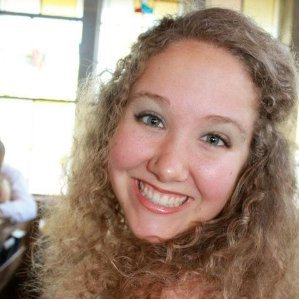Noah, Students “Go-to Guy” for Tech Support
/By Craig Leonard, WorkStory Ambassador at Western University
Noah Giunta is a Library Services Support Technician at Mohawk College of Applied Arts and Technology. As a support technician Noah’s responsibility is to facilitate student learning, either through one-on-one assistance or various online resources.
Prior to becoming involved in technical support Noah was working in a fiberglass factory to pay for his training as a tattoo artist apprentice. After completing his apprenticeship, Noah started working as a tattoo artist in a shop in Toronto. Noah had always wanted to be a tattoo artist, and was happy with his job when one day he was involved in an accident that injured his hip, rendering him unable to continue practicing tattoo artistry. Noah was now forced to consider new directions in which to to take his career.
Having always been a technologically inclined individual, Noah began looking into fields related to computers and technology. Knowing full-well that technology is the way of the future, Noah set his sights on the Network Systems Technician program, a two-year program offered at Mohawk College. Noah enrolled in the program unsure of which area of technology he wished to pursue. A requirement of the program was to complete a co-op position. This would provide Noah with some insight and an idea of the field of technology he was interested in. He was given the opportunity to complete a four-month co-op position within the Mohawk Library. There he performed tier one technical support, involving basic computer setup and trouble-shooting, Wi-Fi and networking assistance, and other technology-related help. Upon completion of the co-op contract, Noah applied to a second co-op position at the library and went back to fulfill his second co-op component.
Noah is thankful for his time as a co-op student at the library because it revealed to him his passion for working with students and for helping people. If you were to ask Noah if he had ever considered himself working in a college library providing technical support, he would have laughed. Noah had wanted to do tattoos for as long as he could remember, but after 3 months of his co-op he quickly realized that he had a passion for working in an academic setting and interacting with people. While earning his diploma, coincidentally a full-time position opened up at the library.
Noah’s average day consists of many of the same activities performed during his time as a co-op student, and also includes working on some of the online resources available at the college and holding workshops for students. In these workshops students are given the opportunity to learn about various online resources, such as Microsoft Suite, ePortfolios, and learning management systems. Noah especially enjoys holding the workshops, as it gives him an opportunity to sit down one-on-one with students and interact with them. He says that, “in many jobs you are not given the opportunity to teach people things in a casual and fun manner, and this is one part of my job that I always look forward to”.
According to Noah, skills in communication, thinking on your feet, troubleshooting, and research are crucial to be successful as a Library Support Technician. “There are times when you might not be sure about the answer to a question, at which point you have to do your own research or communicate with other members of the library to find a suitable solution”. Noah’s advice to others? “Reach for job opportunities and put yourself out there! The technology industry is booming right now and there are lots of job opportunities, but there are also a lot of people who are looking for jobs.” He also tells people to “think of information technology as more than just a person typing away on a computer keyboard, there is a whole other aspect of it that involves human interaction and interpersonal skills”.










